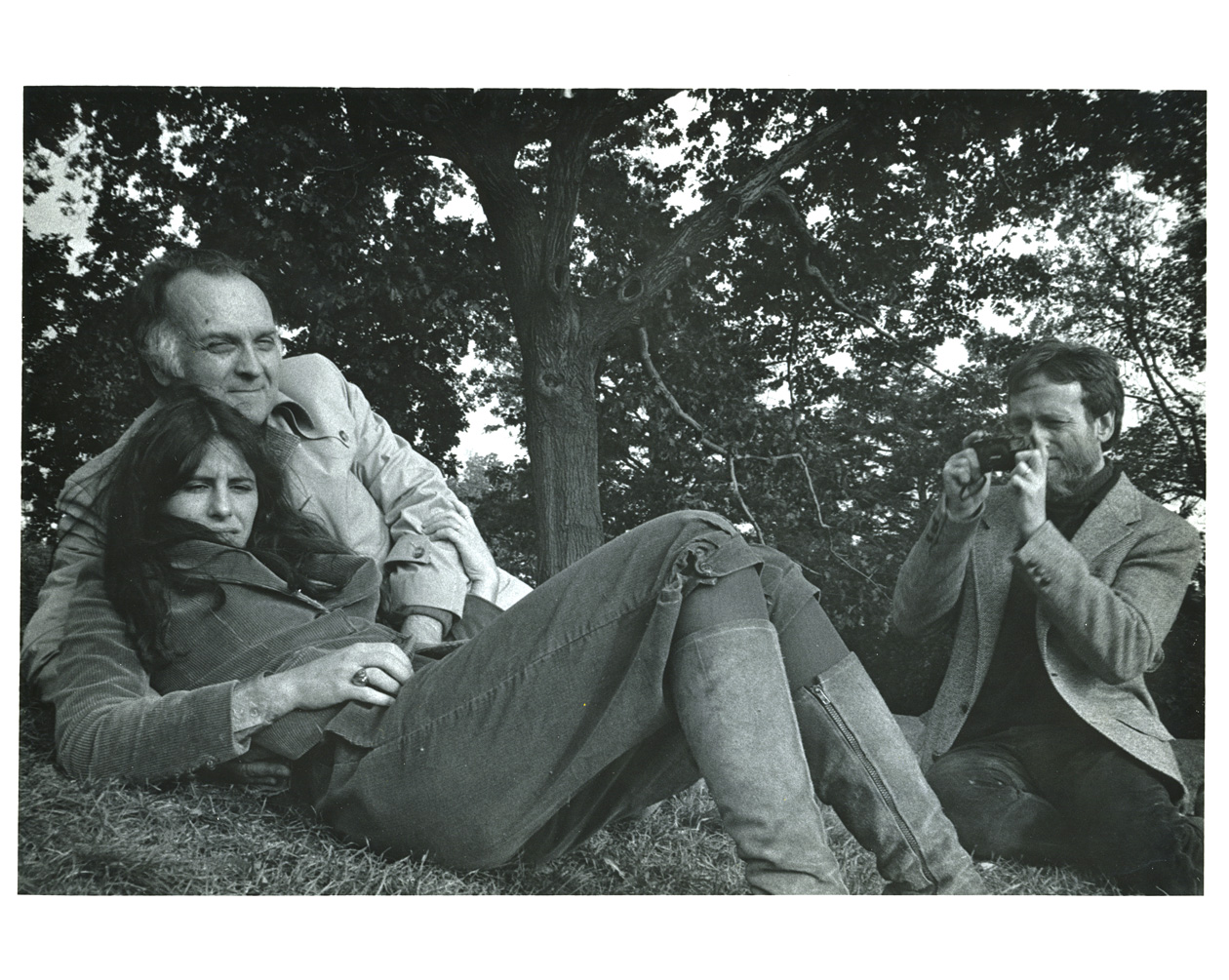
Robert Duncan and Susan Quasha being photographed by George Quasha
NOTES.1955
Blake pays no attention to the beautiful. He desires the joyous. Thus he scorns Titian, Rubens, Rembrandt and Correggio — visual richness as beauty does not mean enough to reach him. For, though Blake is beautiful, the beauty is a by-product of his desire, and, at his very best, of his joyousness. Though he does not desire elegance, his intensity renders him distinctive, and his work can become the artifact of an elegant mind. Such are the ironies of our endeavors. In his lifetime and to his consternation, Blake furnishd forth in his inspired works rich men’s collection pieces and objects for the elegant.
Cocteau has no self-pride, so “Humility” does not haunt him as it haunts Blake; on the other hand, Cocteau craving the public eye feels the demands of an “invisible” style.
=====
As I work at the Cocteau ( Journal d’un Inconnu) . . . a period of virulent contagions, fevers of Blake . . . and the closeness of Cocteau’s journal to my own designs, a closeness that is of the design anyway. But to give my vices a world in which to flower, and a universe for my demons to walk by night in is a virtue of writing at all. It is ¿is it not? the great possibility that one may sin here: and the mortal sin in the modern code is to violate one’s originality. So I give in to the violation of a mimesis of Blake, become no more or a medium. It is the great possibility too that one might practice inordinate modern virtues. However, I have abilities at imitation which I do not find in invention. Such is the abhorrence of the second rank in this day that in order to admit what I am doing I find myself fairly flaunting my “I don’t care.” Yet some profession of my inabilities is necessary in order to exploit my abilities. And, given my range — which may well be as Olson notes something always more or less than I pretend — I do not do badly at all.
I learn from the Zohar that, being a confirmd Sodomite, I shall be utterly extinguishd in time: which I see, as I write here late at night by a kerosene lamp, as a guttering candle. This would give, were it, childlike, believed, an enduring pathos to my writing. That is, were it true that my spirit has no lasting claim, my spirit would have just this lasting claim — of its pathetic address to an eternity, to a lasting claim.

No comments:
Post a Comment